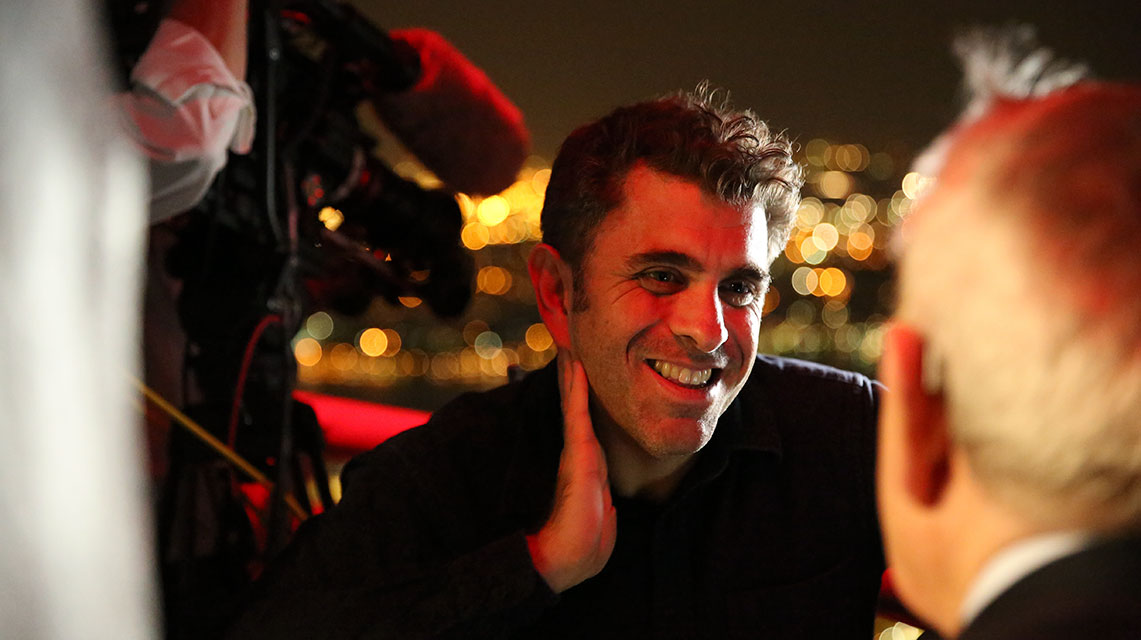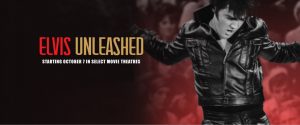Nos adentramos de nuevo en el mundo de las cámaras para hablar con Eugene Jarecki. Reputado y galardonado director de documentales que descubrimos con su "The King" que en España tenemos la posibilidad de verlo por plataformas de pago de televisión. En este documental se embarca en un viaje por Estados Unidos con uno de los Rolls Royce de Elvis y a partir de varios testimonios compara la situación de América con el auge y caída de la carrera de Elvis… Es un placer descubrir todos los detalles del lanzamiento con su director, sus opiniones, nos cuenta como ha ido y muchas cosas más en el siguiente artículo
MetalSymphony.com
Fotos promocionales: David Kuhn
ENGLISH VERSION BELOW
M.S: Hola Eugene, gracias por atendernos, es un placer tenerte en nuestra página, ¿qué tal estás?
Estoy muy bien, gracias por invitarme.
M.S: Para presentarte y que te conozcan nuestros lectores, cuéntanos cómo comienzas en el mundo de los documentales y qué te atrae de este sector….
Toda mi vida, me han atraído las cuestiones de la dignidad humana y la justicia social. Comencé como director de escena y luego tuve la oportunidad de contribuir a la sociedad a través de la narración de historias en el cine. Inicialmente, trabajé en películas dramáticas, pero, con el desarrollo de la tecnología digital, me encontré en el mundo del documental cuando las cosas que filmé en el mundo real, principalmente por genuino interés humano, de repente resultaron comercializables para una audiencia de televisión y cine. No esperaba esto, pero comencé a hacer documentales justo cuando el género comenzaba a crecer.
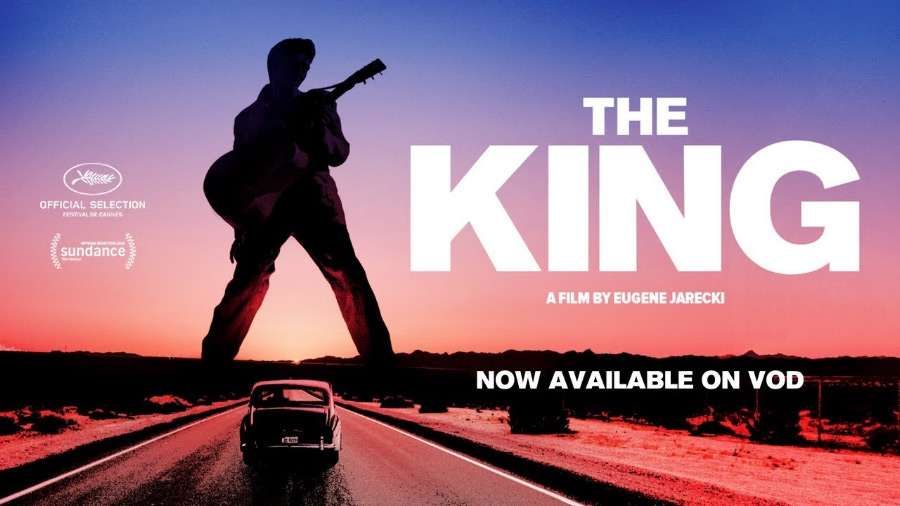
M.S: Entre tu videografía no encontramos otros trabajos relacionados con la música y tu primera incursión ha sido con este “The King”, ¿cómo se te ocurrió la idea y por qué?
He sido músico toda mi vida y también productor musical. Cuando comencé a hacer películas, la edición y puntuación de películas eclipsó las otras actividades musicales en mi vida. Trabajo muy de cerca con los compositores en todas mis películas de una manera muy práctica. Particularmente con el compositor Robert Miller, estas colaboraciones de puntuación musical, en películas como Why We Fight, Reagan y House I Live In, por ejemplo, han sido experiencias extremadamente inspiradoras en mi vida. De todas las películas, The King es la película más abiertamente musical que he hecho, pero creo que todas las películas han sido impulsadas por su música. Creo que toda la historia de la humanidad se puede leer a través de nuestra música. Entonces, si bien la música siempre ha sido una lente para desarrollar aspectos de la sociedad en todas mis películas, The King presenta música en su fachada y contenido. Pero la idea de la película no era originalmente musical. La idea inicial de la película surgió como una pregunta: si el ascenso meteórico de Elvis fue una metáfora del sueño americano, un chico de campo que puede elevarse tan rápido y tan lejos que se convierte en rey, entonces, ¿qué significa su descenso? ¿Se ha convertido América, que alguna vez brilló como Elvis, en el Rey perdido, adicto e hinchado que murió en el baño? Y si esto nos ha sucedido, ¿cómo sucedió y a dónde vamos desde aquí? Esto me dio la idea de un viaje por el país en el Rolls Royce imperial de Elvis. Desde la parte trasera del automóvil, amigos y colegas de Elvis, así como una amplia gama de otros estadounidenses, lidian con esta pregunta, lo que Emmylou Harris llama, la tragedia griega de la vida de Elvis y su paralelismo con el país que dejó atrás.
M.S: En el documental vemos que hay una especie de paralelismo entre el auge y caída de América comparándolo con la carrera de Elvis. De hecho, hay varios testimonios del documental que tampoco considerarían a Elvis como “The King”. Aparte de esto, fuera del documental quizá haya quienes no les ha gustado la utilización de uno de los símbolos de la cultura americana como es él, para demostrar el estado actual del país, no?
El ascenso y la caída de Elvis es una especie de tragedia mitológica y, sí, creo que tiene una resonancia metafórica para Estados Unidos. Pero como figura pública, también es controvertido. Mientras que algunas personas, particularmente los estadounidenses de raza blanca, pueden verlo como "El Rey" del Rock & Roll, otros, en la América negra, por ejemplo, lo ven como un símbolo de la injusticia continua de la vida estadounidense. Elvis claramente amaba la música afroamericana, y tenía un talento único. Pero como Chuck D señala en la película, la leonización de Elvis como un héroe estadounidense, cuando te das cuenta de que se había inspirado tanto en la música de la comunidad negra, es otro recordatorio para los negros de la injusticia racial estadounidense. Muchos artistas de los que Elvis obtuvo ganaron mucho menos dinero y obtuvieron mucha menos celebridad y adulación que él, en gran parte debido al color de su piel. Entonces, aunque su trágico final es una importante historia de advertencia para Estados Unidos sobre su propio camino y futuro, otros aspectos de su historia son menos comprensibles de manera uniforme.
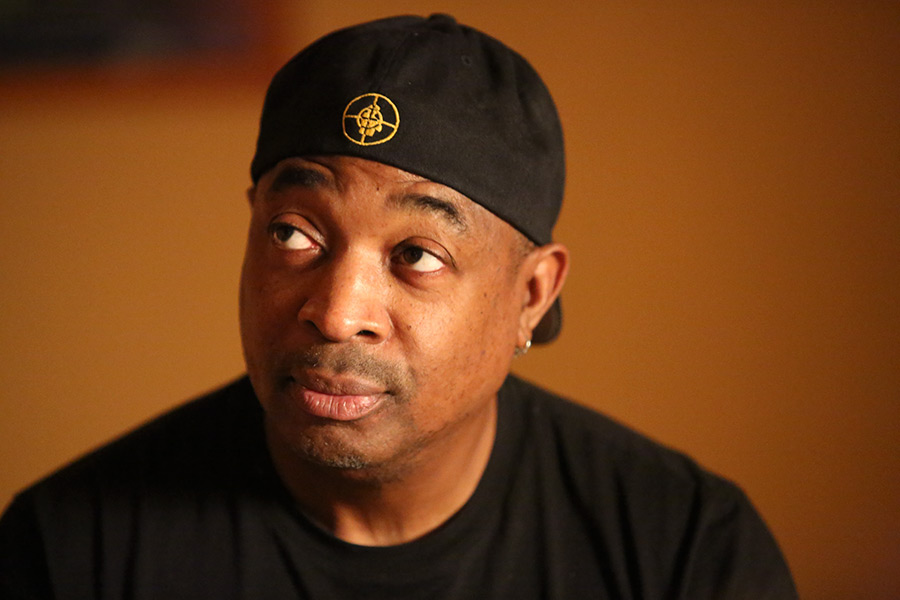
M.S: Hablando de su distribución ¿verías una buena idea que los documentales estuvieran también en cartelera como una película normal o crees más viable hoy en día que estén solamente en plataformas de pago como Netflix o similar? Así es como ya ha hecho muchos kilómetros el Rolls Royce de The King, en España ha llegado hace un tiempo emitiéndose en una plataforma de tele de pago…
Creo que la explosión de la tecnología digital y las plataformas para ver películas es una bendición y una maldición. Ahora hay muchas más formas de ver películas, pero no estoy seguro de saber si el impacto resultante de tales películas en la experiencia humana es tan unificador para las personas como lo fue en las salas de cine de hace años. Me inclino a pensar que mirar películas en plataformas digitales tiende a dividir a las personas, a aislarnos unos de otros, por lo que, aunque una película puede, en su contenido, subrayar los valores humanistas del colectivismo o la dignidad humana, la individualización de la visualización. la experiencia en sí misma es muy aislante. Sí, las personas pueden enviarse enlaces entre sí, etc. Pero no sé si eso tiene la sensación que recuerdo de haber visto películas en los cines con una audiencia amplia, sentir la reacción colectiva a lo que estaba en pantalla y luego salir al cine. aire nocturno con la sensación de que yo era parte de un colectivo para quien esa historia importaba.
M.S: Para ser tu primer documental musical, ¿qué tal ha sido el resultado? ¿Qué feedback has tenido de la gente y/o prensa?
Los miembros de la audiencia parecen responder de diferentes maneras. Quienes aman a Elvis y vienen a ver una película de Elvis, ven un documental que les recuerda su amor por él y su tristeza por su muerte prematura. Los que aman a Estados Unidos pueden ver algo diferente. En su historia, ven una especie de canario en la mina de carbón, una historia de advertencia sobre la nación y hacia dónde, sin una corrección de rumbo, podría dirigirse.
Después de que la película se estrenó en Cannes y Sundance, recibió elogios de la crítica y, en el ámbito de la música, me sentí particularmente orgulloso de haber recibido una nominación en los Premios Grammy 2019 a la mejor película musical del año.
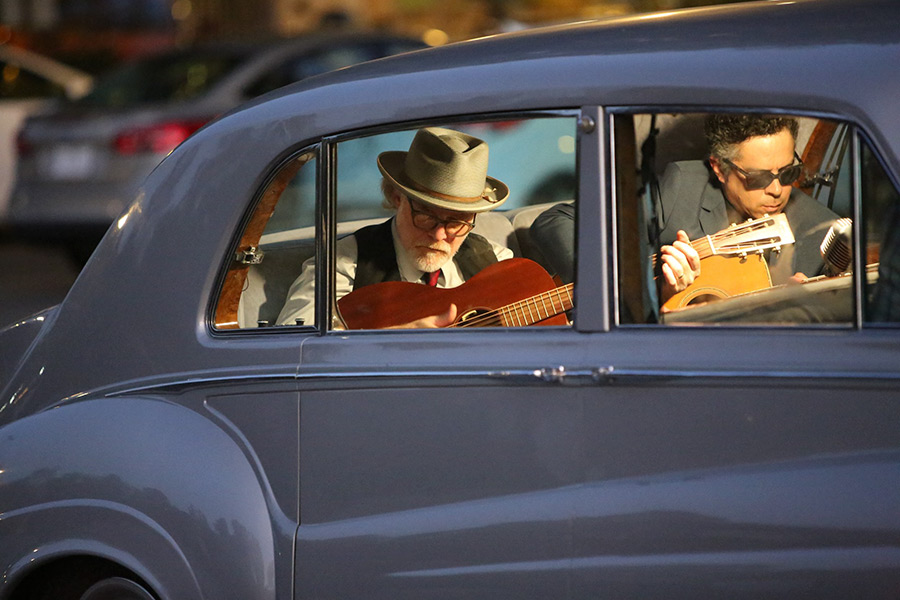
M.S: Ahora que ya te estrenaste con la música… te gustaría hacer otro documental sobre otro artista/grupo? ¿Cuál?
La música siempre ha sido una parte importante de mi vida y mi trabajo. Estoy interesado en ver el papel que juega la música en los cambios culturales, sociales y políticos a lo largo de la historia. Actualmente estamos en desarrollo en un proyecto que explora esto.
M.S: Acabamos ya y hablando del futuro, ¿qué planes tienes para 2020, tienes algo en mente que nos puedas contar?
Es un momento muy bueno y con mucho trabajo. Estamos en postproducción de un nuevo documental, tenemos un par de series de ficción y no ficción que hemos desarrollado, cuyas plataformas de exhibición se están negociando actualmente, así como algunas características dramáticas. El primero de estos que se producirá es en Sahara Occidental, una historia de venganza ambientada en el norte de África, basada en un libro superventas, que se filmará en octubre de 2020. Eso es todo lo que puedo decir por ahora.
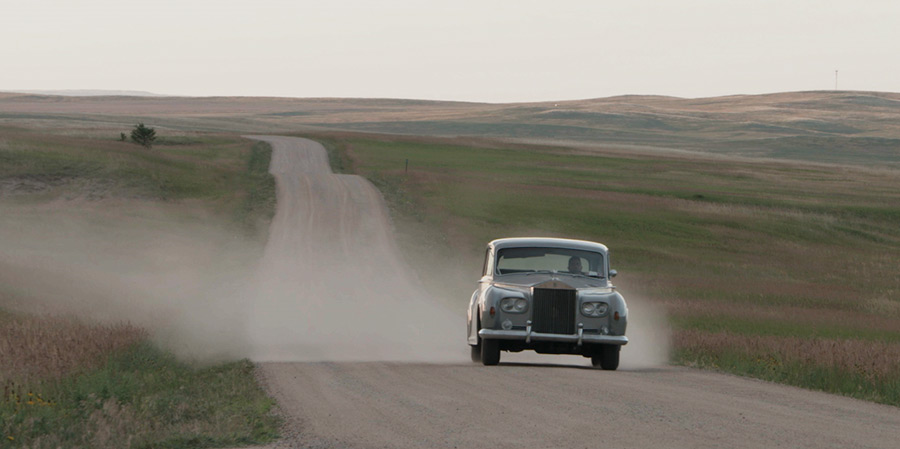
M.S: Gracias por tu tiempo, si quieres decir algo más este es el momento, ha sido un honor haber podido hablar contigo, mucha suerte en todos tus proyectos.
Muchas gracias. Ha sido un placer.
David Aresté / Susana Manzanares
Fotos promocionales: David Kuhn
| ENGLISH VERSION |
M.S: Hello Eugene, thanks for your time, it’s nice to have you on our site, how are you?
I’m doing great, thanks for having me.
M.S: To introduce yourself and that our readers know you, tell us how you start in the world of documentaries and what attracts you to this sector….
All my life, I’ve been drawn to questions of human dignity and social justice. I started as a stage director and later had the chance to make a contribution to society through storytelling in film. Initially, I worked on dramatic films, but, with the development of digital technology, found myself in the world of documentary when things I filmed in the real world, mainly out of genuine human interest, suddenly proved marketable to a TV and cinema audience. I had not expected this, but it I started making documentaries right when the genre was beginning to grow.

M.S: Among your videography we did not find other works related to music and your first foray was with this "The King", how did you come up with the idea and why?
I have been a musician my whole life and also a music producer. When I started making films, the editing and scoring of films sort of eclipsed the other musical activities in my life. I work very closely with the composers on all my films in a very hands-on way. Particularly with the composer Robert Miller, these musical scoring collaborations, on films like Why We Fight, Reagan, and the House I Live In, for example, have been extremely inspiring experiences in my life. Of all the films, The King is the most overtly musical film I have made, but I think all the films have been very much driven by their music. I think the whole history of humanity can be read through our music. So while music has always been a lens on developing aspects of society in all my films, The King features music front and center. But the idea for the film was not originally musical. The initial idea for the film came as a question: If Elvis’ meteoric rise was a metaphor for the American dream – a country boy who can rise so fast and far that he becomes a King – then what does his descent mean? Has America, who once shone like Elvis, become, in effect, the lost, addicted, bloated King who died on the toilet? And if this has happened to us, how did it happen and where do we go from here? This gave me the idea for a cross-country roadtrip in Elvis’ imperial Rolls Royce. From the back of the car, friends and colleagues of Elvis, as well as a wide range of other Americans, grapple with this question, what Emmylou Harris calls, the Greek Tragedy of Elvis’ life and its parallel to the country he left behind.
M.S: In the documentary we see that there is a kind of parallelism between the rise and fall of America compared to Elvis’s career. In fact, there are several testimonies of the documentary that would not consider Elvis as "The King." Apart from this, outside the documentary there may be those who have not liked the use of one of the symbols of American culture as it is, to demonstrate the current state of the country, right?
Elvis’ rise and fall is a kind of mythological tragedy and, yes, I think it has metaphoric resonance for America. But as a public figure, he is also controversial. While some people – particularly White Americans – may see him as “The King” of Rock & Roll, others, in Black America, for example, see him as a symbol of the ongoing injustice of American life. Elvis clearly loved African American music, and he was uniquely talented. But as Chuck D points out in the film, the lionization of Elvis as an American hero, when you realise that he had drawn so heavily from the music of the black community, is another reminder to black people of American racial injustice. Many many artists that Elvis drew from made far less money and got far less celebrity and adulation than he, largely because of the color of their skin. So while his tragic end is an important cautionary tale for America about her own path and future, other aspects of his story are less uniformly understandable.

M.S: Speaking of its distribution, would you see a good idea that documentaries were also on the billboard like a normal movie or do you think it is more viable today that they are only on paid platforms like Netflix or similar? This is how the King’s Rolls Royce has done many kilometers, in Spain this year has arrived broadcasting on a pay-TV platform …
I think the explosion of digital technology and platforms for watching films is a blessing and a curse. There are many more ways now to watch films, but I am not sure we know whether the resulting impact of such films on the human experience is as unifying for people as it was in the movie houses of yesterday. I am inclined to think that watching movies on digital platforms has the tendency to divide people, to isolate us from one another, so even though a movie may, in its content, underscore humanist values of collectivism or human dignity, the individuation of the viewing experience itself is just so very isolating. Yes, people may send each other links, etc. But I don’t know that has quite the feeling I remember having of watching films in theaters with a wide audience, feeling the collective reaction to what was onscreen, and then going out into the night air with a sense that I was part of a collective to whom that story mattered.
M.S: To be your first musical documentary, how was the result? What feedback have you had from people and / or the press?
Audience members seem to respond in different ways. Those who love Elvis, and come to see an Elvis movie, see a documentary that reminds them about their love for him and their sadness at his premature death. Those who love America might see something different. In his story, they see a kind of canary in the coalmine, a cautionary tale about the nation and where, without a course correction, she may be headed.
After the film premiered at Cannes and Sundance, it received critical acclaim, and in the music sphere I was particularly proud that it got a nomination at the 2019 Grammy Awards for Best Music Film of the Year.

M.S: Now that you have premiered with music … would you like to make another documentary about another artist / group? Which?
Music has always been a major part of my life and work. I’m interested in looking at the role music plays in cultural, societal, and political shifts throughout history. We are currently in development on a project that explores this.
M.S: We have just finished talking about the future, what are your plans for this 2020, do you have something in mind that you can tell us?
It’s a very good and busy time. We are in post-production on a new documentary, have a couple of fiction and nonfiction series we’ve developed, whose exhibition platforms are currently being negotiated, as well as a few dramatic features. The first of these that will be produced is a Saharan Western, a revenge story set in North Africa, based on a bestselling book, to be filmed in October 2020. That’s all I can say for now.

M.S: Thank you for your time, if you want to say something else, this is the moment, it has been an honor to have been able to talk to you, good luck in all your projects.
Thank you so much. It’s been a pleasure.
Metalsymphony.com
Promo pics: David Kuhn

